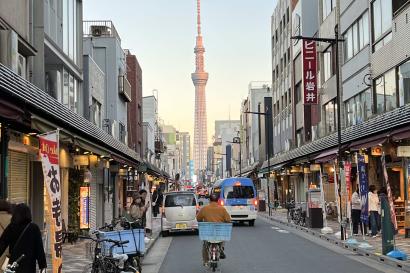Culture shock is defined as the personal disorientation a person may feel when experiencing an unfamiliar way of life due to immigration or a visit to a new country, a move between social environments, or simply travel to another type of life.
Culture shock is one of those things that everyone almost immediately mentions when the topic of study abroad comes up; they told us about it before we left, we talked about it during orientation here, and just a few weeks ago we had a meeting to talk about our time in Japan so far and any culture shock we’ve experienced. I know some people on our program who have handled their culture shock very well and others who took it pretty hard. Some people experienced it right away after arriving in Japan and others, like myself, didn’t experience it until very recently.
What no one tells you is that when you are going through culture shock, it doesn’t have to be huge cultural differences that cause discomfort; sometimes it’s the smallest of things that can be extremely frustrating. For example, at my dorm the manager will say “itterasshai” (please go and come back) and “okaerinasai” (welcome home) to us whenever we leave or come back. In return, we’re supposed to reply with “ittekimasu” (I’m going and will come back) and “tadaima” (I’m home). It can take a while to get used to this though and just last week I accidentally replied with “okaeri” when my dorm manager said “okaerinasai”. So not only did I respond to “welcome home” with “welcome home”, I used the very casual version of it. It was embarrassing to say the least and I was very frustrated that I still didn’t have this down yet.
From what I’ve experienced personally and also seen happen with other people, I would argue that language barrier is often the biggest challenge when it comes to culture shock. It frustrates so many people on my program (myself included) no matter what the skill level. People who can’t speak any Japanese are very frustrated that they can’t communicate easily and people who can speak Japanese may get frustrated when they can’t understand what someone is saying because they feel like they should be able to at this point. And since language is usually not easily acquired, this barrier can be the hardest to overcome.
My advice for people trying to prepare for culture shock would be to try and learn as much as possible ahead of time about the country where you will be studying. The more prepared you are, the less likely it will be that everything shocks you. I read as much as I possibly could about studying in Japan and I think it definitely helped with handling culture shock.
Overall, culture shock is not at all a pleasant experience. However, it definitely opens your eyes to not only a different culture but also your own. I’ve never thought about my own culture so much until I came to Japan. It’s helped me realize the same thing that one of my other friends did during her experience abroad: customs in your study abroad country aren’t wrong, they’re just different. And you’ll have to learn how to adjust and deal with that.

Mikaela Breese
<p>Mikaela is a junior at Indiana University majoring in International Studies and East Asian Languages & Cultures. Originally from the suburbs of Chicago, she has spent the past few years enjoying life as a Hoosier while dreaming of the day she finally got to go abroad. Traveling is one of her greatest passions and she looks forward to exploring not only Tokyo but as much of Japan as possible during her semester abroad. She is actively involved in both her sorority and International Studies Honor Society, and enjoys reading, hiking, and drinking tea in her free time. She is so excited for the adventure that lies ahead and can’t wait to share it with everyone!</p>








